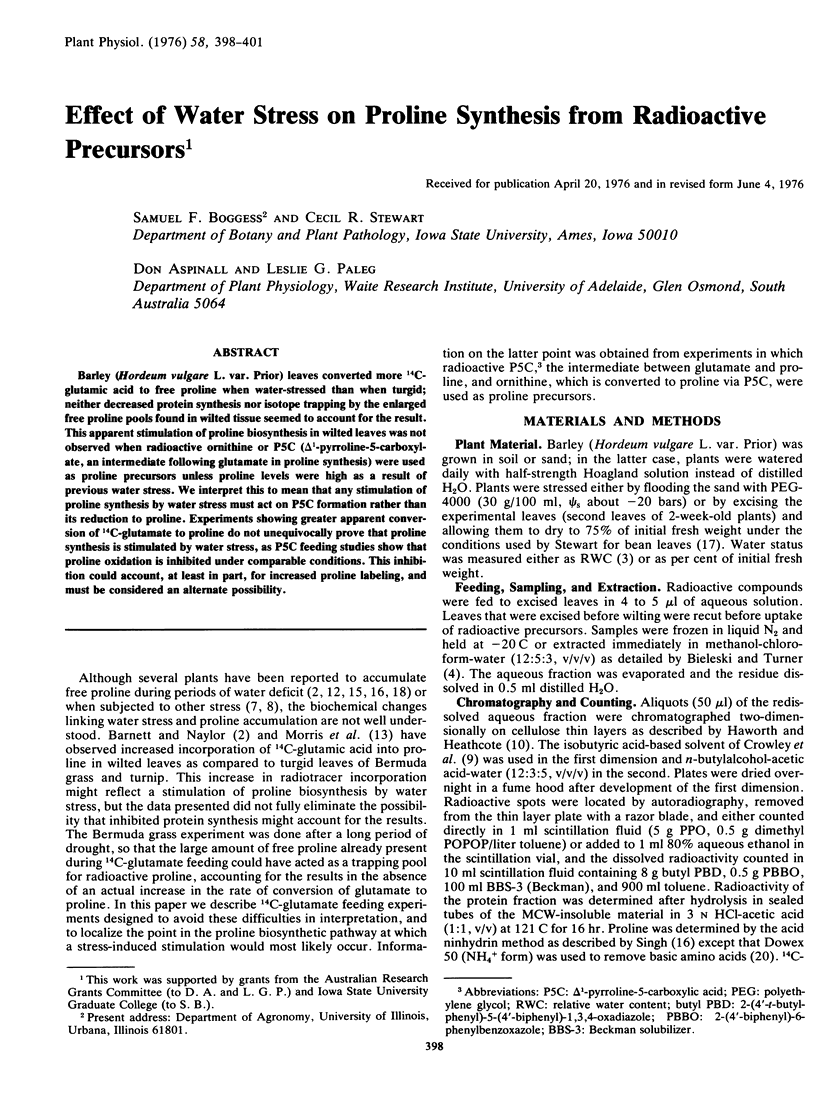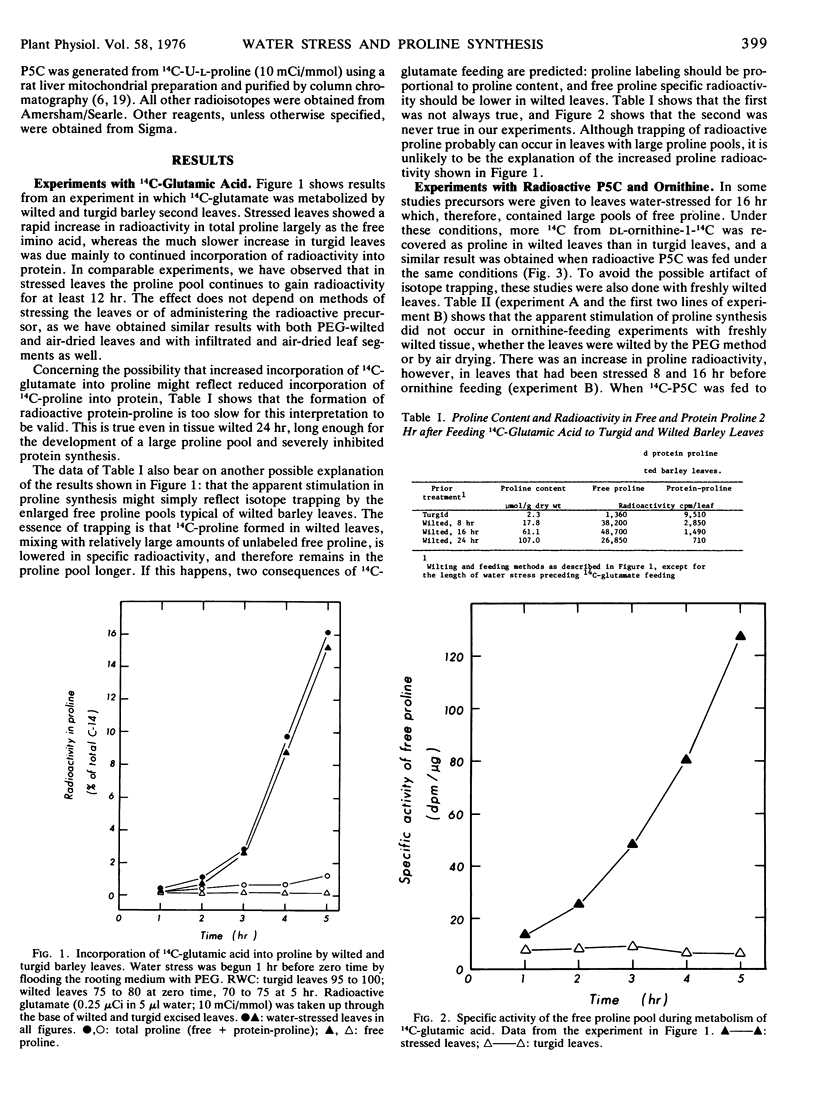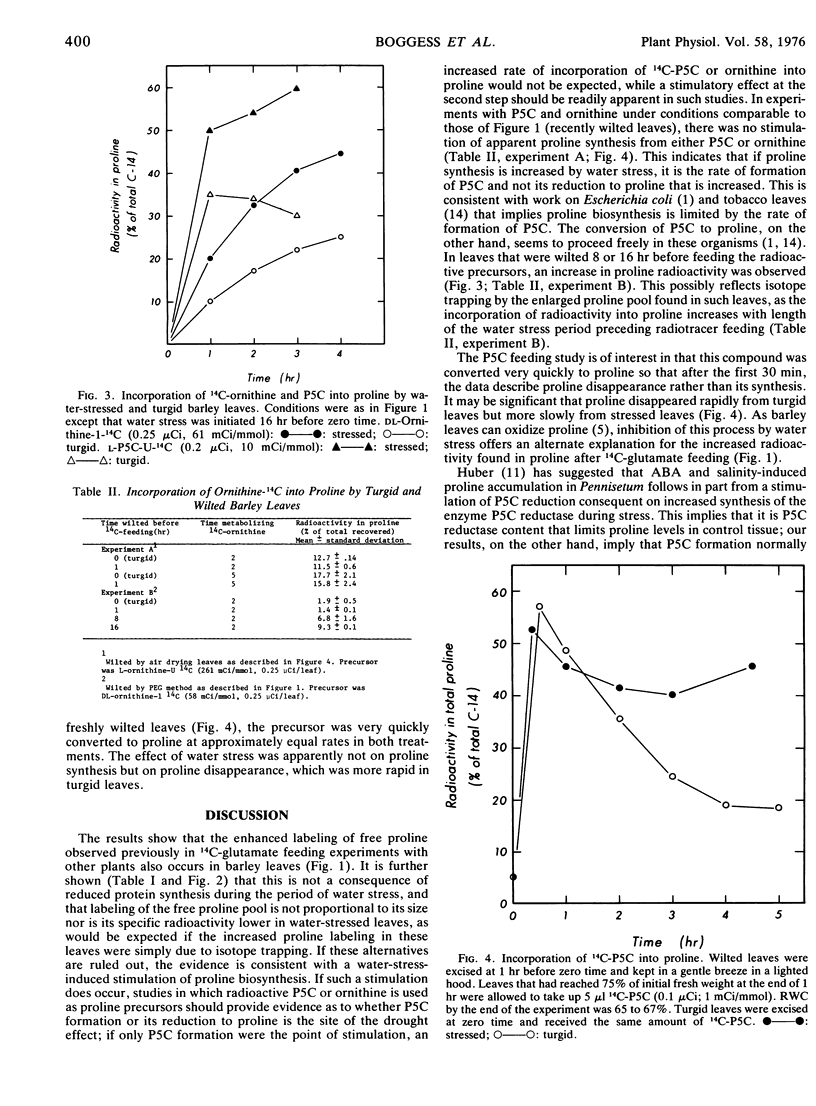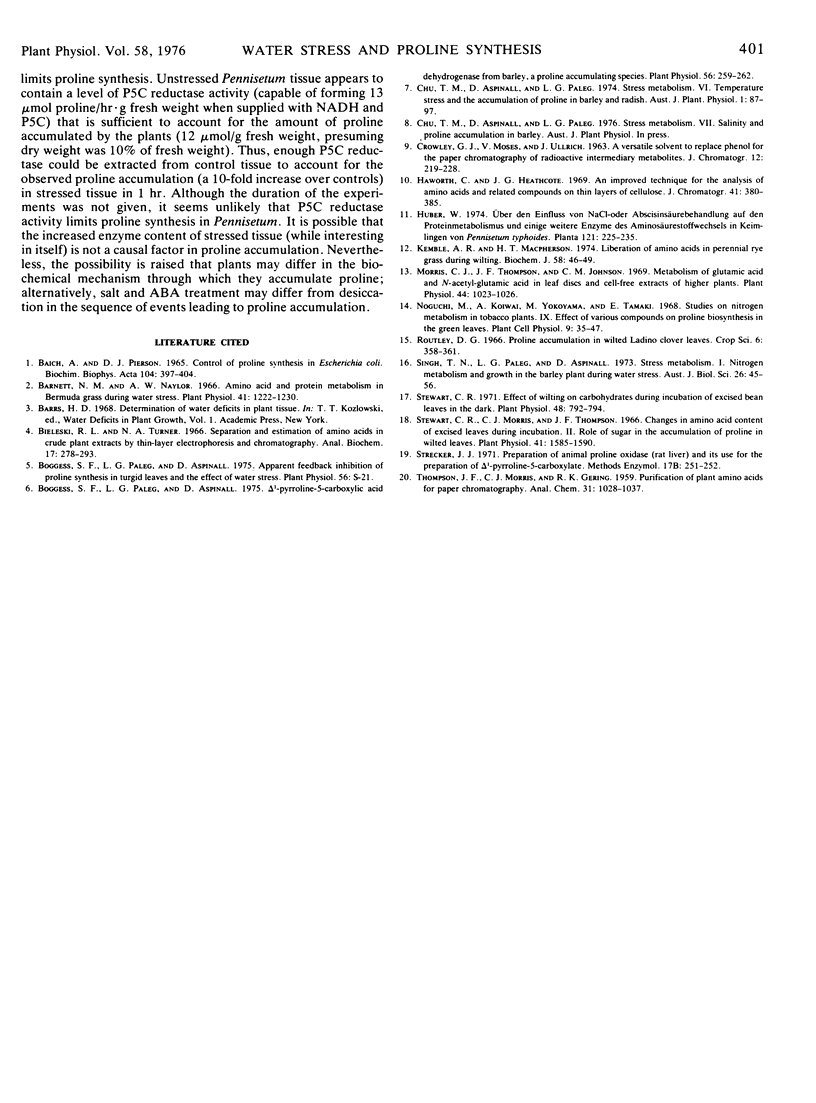Abstract
Barley (Hordeum vulgare L. var. Prior) leaves converted more 14C-glutamic acid to free proline when water-stressed than when turgid; neither decreased protein synthesis nor isotope trapping by the enlarged free proline pools found in wilted tissue seemed to account for the result. This apparent stimulation of proline biosynthesis in wilted leaves was not observed when radioactive ornithine or P5C (Δ1-pyrroline-5-carboxylate, an intermediate following glutamate in proline synthesis) were used as proline precursors unless proline levels were high as a result of previous water stress. We interpret this to mean that any stimulation of proline synthesis by water stress must act on P5C formation rather than its reduction to proline. Experiments showing greater apparent conversion of 14C-glutamate to proline do not unequivocally prove that proline synthesis is stimulated by water stress, as P5C feeding studies show that proline oxidation is inhibited under comparable conditions. This inhibition could account, at least in part, for increased proline labeling, and must be considered an alternate possibility.
Full text
PDF



Selected References
These references are in PubMed. This may not be the complete list of references from this article.
- Baich A., Pierson D. J. Control of proline synthesis in Escherichia coli. Biochim Biophys Acta. 1965 Jul 8;104(2):397–404. doi: 10.1016/0304-4165(65)90345-4. [DOI] [PubMed] [Google Scholar]
- Barnett N. M., Naylor A. W. Amino Acid and protein metabolism in bermuda grass during water stress. Plant Physiol. 1966 Sep;41(7):1222–1230. doi: 10.1104/pp.41.7.1222. [DOI] [PMC free article] [PubMed] [Google Scholar]
- Bieleski R. L., Turner N. A. Separation and estimation of amino acids in crude plant extracts by thin-layer electrophoresis and chromatography. Anal Biochem. 1966 Nov;17(2):278–293. doi: 10.1016/0003-2697(66)90206-5. [DOI] [PubMed] [Google Scholar]
- CROWLEY G. J., MOSES V., ULLRICH J. A VERSATILE SOLVENT TO REPLACE PHENOL FOR THE PAPER CHROMATOGRAPHY OF RADIOACTIVE INTERMEDIARY METABOLITES. J Chromatogr. 1963 Oct;12:219–228. doi: 10.1016/s0021-9673(01)83673-6. [DOI] [PubMed] [Google Scholar]
- KEMBLE A. R., MACPHERSON H. T. Liberation of amino acids in perennial rye grass during wilting. Biochem J. 1954 Sep;58(1):46–49. doi: 10.1042/bj0580046. [DOI] [PMC free article] [PubMed] [Google Scholar]
- Morris C. J., Thompson J. F., Johnson C. M. Metabolism of Glutamic Acid and N-Acetylglutamic Acid in Leaf Discs and Cell-free Extracts of Higher Plants. Plant Physiol. 1969 Jul;44(7):1023–1026. doi: 10.1104/pp.44.7.1023. [DOI] [PMC free article] [PubMed] [Google Scholar]
- Stewart C. R. Effect of Wilting on Carbohydrates during Incubation of Excised Bean Leaves in the Dark. Plant Physiol. 1971 Dec;48(6):792–794. doi: 10.1104/pp.48.6.792. [DOI] [PMC free article] [PubMed] [Google Scholar]
- Stewart C. R., Morris C. J., Thompson J. F. Changes in Amino Acid Content of Excised Leaves During Incubation. III. Role of Sugar in the Accumulation of Proline in Wilted Leaves. Plant Physiol. 1966 Dec;41(10):1585–1590. doi: 10.1104/pp.41.10.1585. [DOI] [PMC free article] [PubMed] [Google Scholar]


